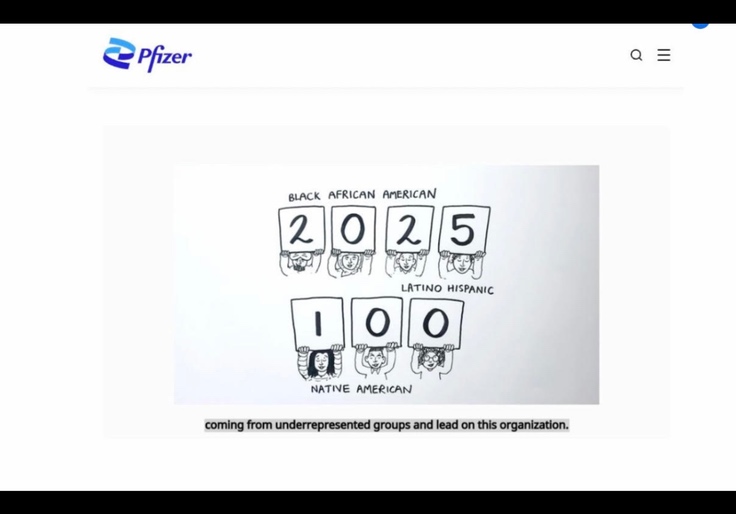Below is a review of the posts (on Facebook, LinkedIn, and Twitter) from the past week. You can check out the full posts by clicking on the links.

In the post on Sunday 9/25/2022 we learned how to make remote workers feel at home (no pun intended). As more employees continue to work remotely part- or full-time, employers must make sure they still feel part of the team. What are some of the ways employers can accomplish that? One is to invest in technology that enhances remote work. Maybe what everyone else uses is not what is best for your company. Another is to get employee feedback to improve remote work. How do you do that? See the post. Yet another way is to allow for spontaneous virtual interactions. Kind of like a chance meeting at the water cooler or coffee pot. How to replicate this is also in the post. And there are still more ways that employers can help the team as described in the post.
TAKEAWAY: Your workforce is now probably more far-flung than in the past so figure out how to make it work for you and them.

The post on Monday 9/26/2022 told us Pfizer hit with lawsuit over fellowship that excludes Whites and Asians. There are interesting facts here. The fellowship is a 9-year program that includes a fully-funded master’s degree and guaranteed employment with Pfizer. But a lawsuit filed in mid-September by a medical advocacy group (on behalf of individuals) alleges that the criteria for the fellowship violate the Civil Rights Act of 1866, Title VI of the 1964 Civil Rights Act, Section 1557 of the Affordable Care Act, and applicable state laws. What each of the references laws provides is noted in the post. And how does the Plnatiff bring in Title VI and Section 1557? Because Pfizer accepts reimbursements from the government. The suit was filed on behalf of two Ivy League students who meet the academic requirements for the fellowship but cannot apply because of their race (the post contains the fellowship’s racial restrictions). The suit asks for an injunction against selection of a 2023 fellows class and for race-blind criteria going forward. Pfizer’s comment? See the post.
TAKEAWAY: Companies may have good intentions to remedy past racial disparities, but it must be done in a legal and non-discriminatory manner. Consult an employment lawyer to make sure you stay legal.

The post on Tuesday 9/27/2022 was about the ABCs of Employment Law: Employment At Will. While this is not embodied in a law, it might as well be based on its universal acceptance and use. Its almost universal misunderstanding is a problem. So what is employment at-will? See the post for a concise definition (in all stated but Montana). But does that mean an employer can always do what it wants, law be damned? No. The employer still has to comply with any other applicable law, including the ADEA, Title VII, the ADA, and others listed in the post (including if the termination is for a violation of public policy. And what if the reason for termination is really valid? Will the employee just accept it and walk away quickly and quietly? Maybe … or maybe not. The employee’s thought process might be similar to that noted in the post (and might include help from a lawyer). An example of how employment at-will does not save the day is in the post.
TAKEAWAY: Employers should not just rely on employment being at-will in terminating an employee; rather, there should be a valid, legal basis for the termination to help prevent questions, charges or suits in the future.

The post on Wednesday 9/28/2022 showed us that tree battle lines drawn in neighborhood, pitting owners against HOA. Could you see something like this this happening in your condo or homeowners’ association? An owner filed suit against the HOA that is trying to remove Sissoo trees. [For info on Sissoo trees, go to Sissoo Tree Arizona: Reasons to Grow the Tree in Your Yard – (gfloutdoors.com).] The HOA is offering reimbursements to owners who remove the trees in the strip between the sidewalk and the street in front of their homes. Mediation was scheduled for September 22nd. So what is the underlying issue? See the post. This all started last August when the HOA asked for municipal permission to remove 670 ‘street trees”. The former President of the HOA commented at the time; what he said is in the post. The request was denied but the HOA did not appeal. What did it do instead? See the post. And then it even went one better – by the action also noted in the post. The owner who filed suit thinks that how the HOA is going about it is not only an attempt to circumvent the municipal denial, but bad ecologically and utility-wise. See the post for more details on that.
TAKEAWAY: If action by a condo or homeowners’ association board is legal, but not approved by owners, is there anything the owners can do? There might be several options so a community association lawyer should be consulted.

In the post on Thursday 9/29/2022 we read: ‘It’s theft” – neighbors react to homeowners’ vehicle towed by HOA. Apparently the association has “renewed enforcement” of its parking policy; that is causing a divide among owners and Board members. The restriction is clear: residents may not park on the street. But what has been the way things have operated for years? See the post. Some think the HOA is just looking for revenue (from violation fines). The HOA’s lengthy response to the situation? See the post.
TAKEAWAY: Make sure that all actions follow the Governing Documents or applicable law to that any charges or suits are defensible; get assistance from a community association lawyer at the start.

The post on Friday 9/30/2022 told us that nonprofit Skils’kin must pay $100,000 for discrimination, retaliation. What does this entity do? It is supposedly focused on disabilities and employment, and yet it became the defendant in a race discrimination suit by the EEOC. Skils’kin’s sole Black employee was working in the grounds crew at Warren AFB. He was called various racial slurs by other employees. And when he complained about it, what did the employer do? See the post. Eventually he was fired but a white employee hied only three months prior was retained. The case was settled and a consent order entered by the judge. In addition to paying $100,000 to the employee, Skils’kin must also provide much non-monetary relief as listed in the post. How did Skils’kin’s CEO spin it? “… Because Skils’kin already promotes inclusivity, the training agreed to in the decree will only make Skils’kin an even stronger employer going forward.” Interesting comment in light of the allegations (which were probably not admitted in the settlement). For more on retaliation charged, see the post.
TAKEAWAY: Make sure your employees toe the line when it comes to discrimination and retaliation. Train them as to what they can or cannot say or do.

Finally, in the post yesterday 10/1/2022, we saw EEOC reportedly investigating potential discrimination of unpaid college athletes. The National College Players Association (NCPA) filed a complaint in March 2022 with the Department of Education which, in turn, referred it to the EEOC. The complaint alleges that all 350 of the NCAA Division I schools are in collusion to cap compensation and therefore violate Black students’ civil rights. A link to the complaint is in the post. The allegation is that college players are missing out due to “unjust compensation limits”, $24,000 per year for women basketball players and mush larger sums for other athletes (as specified in the post). Of course, the threshold question is whether the student-athlete relationship involves employment (required for EEOC jurisdiction based on the laws it enforces). So how does the complaint tie this to employment? See the post. Interestingly, there is also discussion of the difference between sprots dominated by white athletes and those dominated by Black athletes – yes, see the post. This goes hand in hand with 3 other paths for college athletes to be deemed employees: the NLRB’s memo saying that certain college athletes are employees with the right to unionize (and more) and the other 2 as described in the post. If any path leads to a conclusion that athletes are employees, then they will be in the same situation the Uber and Lyft drivers found themselves (with the implications and ramifications noted in the post).
TAKEAWAY: A court will probably have to resolve this at some point, so keep your eyes out for the case winding its way through Pennsylvania federal courts now (which is noted in the post).

 York, Pennsylvania 17403
York, Pennsylvania 17403